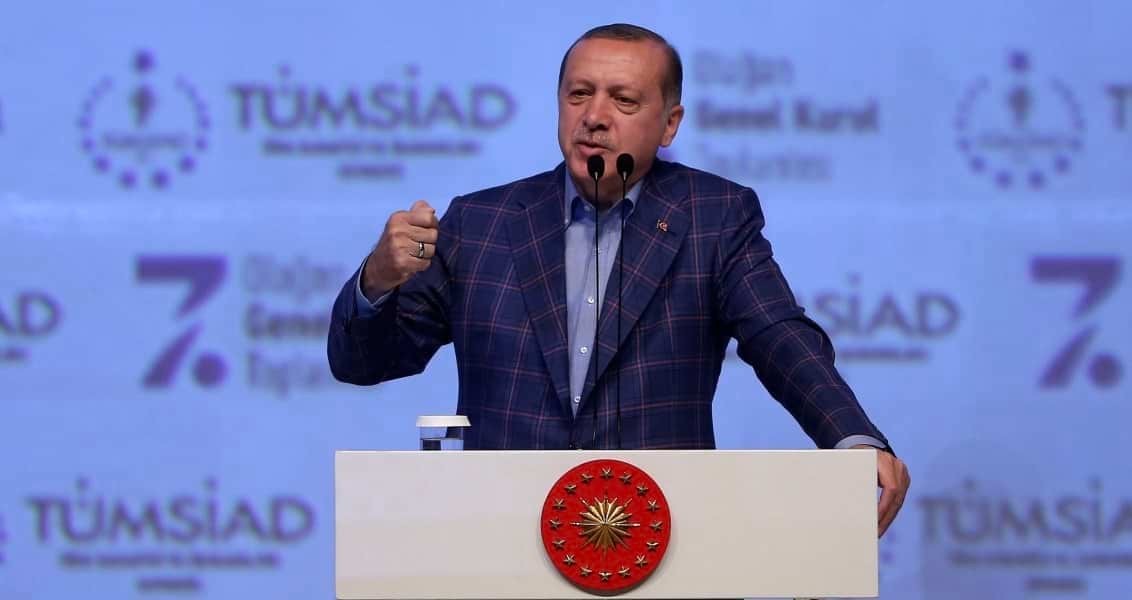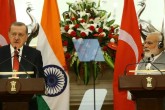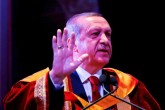Since the April 16 constitutional referendum, certain people in the media have claimed that “Islamists” will be kicked out of the (Justice and Development Party) AK Party. The Islamism debate, which has been a popular subject for years, resurfaced against the backdrop of President Recep Tayyip Erdoğan’s heavily anticipated return to the party. Let us ignore, for a second, the personal rivalries involved and engage this question with an eye on the AK Party’s identity, relationship with key groups and future policies.
Since the AK Party was established in 2001, party elites consistently identified themselves as conservative democrats as opposed to Islamists. They also made frequent references to the term civilization. In recent years, ‘domesticism’ became another important concept.
Ironically, the AK Party has never over the past 16 years managed to avoid being associated with ‘Islamism’. For more than a decade, the movement was described by a variety of groups with certain keywords, as if they were trying to describe an elephant to a blind person. In truth, Islamism has been a negative point of reference for critics and a positive attribute for supporters.
Back in the day, the Western media, which was quite fond of the AK Party at the time, often described Mr. Erdoğan and his movement as moderately Islamist. For them, the term encapsulated the AK Party’s willingness to engage the West and reconcile Islam with democracy.
It was Israel and the Gülen cult (now known as FETÖ) that first used the term radical Islamist to describe the AK Party after Mr. Erdoğan walked off stage at the 2009 Davos Economic Forum and the Mavi Marmara assault. Kemalists and their Republican People’s Party (CHP), in turn, claimed since the beginning that the AK Party had secret plans to establish an Islamic state. Meanwhile, since the Gezi Park revolts, the Western media’s choice of words moved from “Islamist authoritarian” to “Islamofascist dictator.”
By contrast, the AK Party’s supporters have always believed that the movement was indeed Islamist in the sense that it cared about the issues affecting Muslims around the world and looked out for the interests of the ummah.Mr. Erdoğan, in turn, has been seen as a leader who could pursue Turkey’s national interests along with the interests of disadvantaged Muslims in Syria, Somalia and elsewhere around the world. In other words, he emerged as a critic of the Western-centric world order.
In fact, Mr. Erdoğan’s brand of politics blends pragmatism, which appreciates the importance of power, and idealism, which entails the pursuit of broader political goals. He refuses to choose the narrow confines of ideology over practical realities. But he does not turn his back on his identity and values when faced with challenges, either.
In recent years, Mr. Erdoğan has included the common themes of conservatism, nationalism and Islamism, the main pillars of Turkish politics, in his discourse and policies to the best of his ability and under the prevailing conditions.
To be clear, looking out for the best interests of Turkey and Muslims around the world is the backbone of Mr. Erdoğan’s political mission. Accordingly, he considers it important to build and maintain a coalition of elites from diverse ideological backgrounds. Although he allows limited power struggles within this grand coalition, he avoids excluding any groups to serve the interests of any single component.
Just as growing tensions with Israel did not lead to the exclusion of secular elites, rapprochement does not mean that Islamists are no longer welcome. It is important to recall that Mr. Erdoğan kept liberals, nationalists and Islamists under one roof with European integration underway.
Today, Turkey finds itself compelled to confront and renegotiate terms with important players, including Russia, the EU and the U.S. What the country needs is not generic anti-Westernism or anti-Europeanism but a solution that allows the Turks to continue the integration process without hurting their own interests or depriving themselves of the right to be critical. The emerging world order requires the AK Party leadership to build a broader coalition of political elites, not to shut the door on certain groups.
[Daily Sabah, May 1, 2017]
In this article
- Domestic Policy
- Opinion
- 2001
- 2009
- 2017
- Daily Sabah
- Domestic Politics
- Europe
- European Union (EU)
- Fethullah Terrorist Organization (FETÖ)
- Gülen Movement
- Gülenist Terror Organization
- Hizmet Movement
- Islam
- Islamic
- Islamism
- Islamists
- Israel
- Istanbul
- Kemalism
- May 28-August 20 2013 The Gezi Park Protests
- Middle East
- Muslim
- Recep Tayyip Erdoğan
- Russia
- Somalia
- Syria
- Syrian Civil War
- Syrian Conflict
- Syrian Crisis
- taksim
- The President of the Republic of Türkiye
- Turkish President
- Türkiye's Justice and Development Party | AK Party (AK Parti)
- Türkiye's Republican People's Party (CHP)
- United States (US)
- Western Media
- Western World



